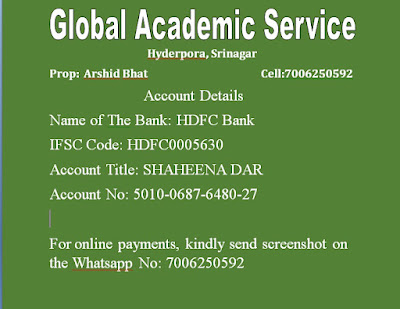📢 Important Announcement for Students 📢
Dear Students,
Please note that all notifications related to your classes, practical sessions, and updates will be published here. Make sure to check this space regularly to stay informed.
Thank you!
GAC
The 12th-grade Non-Medical stream focuses on physics, chemistry, and mathematics, along with optional subjects like computer science or physical education. These subjects are crucial for careers in engineering, technology, and applied sciences. Below are the basic concepts covered in this stream:
1. Mathematics
Mathematics is central to problem-solving and analytical thinking in the Non-Medical stream.
Key Concepts:
-
Calculus:
- Limits, continuity, and differentiability.
- Differentiation and its applications (rate of change, maxima/minima).
- Integration and its applications (area under curves, volume of solids).
-
Algebra:
- Matrices and determinants.
- Solving linear equations and matrix transformations.
-
Vectors and 3D Geometry:
- Dot and cross product of vectors.
- Equations of lines and planes in space.
-
Probability and Statistics:
- Probability distributions (binomial, Poisson, normal).
- Mean, variance, and standard deviation.
-
Relations and Functions:
- Types of functions (one-to-one, onto, inverse).
- Composition of functions.
-
Differential Equations:
- Formation and solution of first-order differential equations.
2. Physics
Physics focuses on understanding natural phenomena and the laws governing them, forming the foundation for engineering and applied sciences.
Key Concepts:
-
Electrostatics and Current Electricity:
- Electric charges, Coulomb's law, electric field, and potential.
- Capacitance and dielectrics.
- Ohm's law, Kirchhoff’s laws, and electrical circuits.
-
Magnetism and Electromagnetic Induction:
- Magnetic fields due to current-carrying conductors.
- Faraday’s laws of induction, Lenz’s law, and transformers.
-
Optics:
- Reflection and refraction of light.
- Wave optics: Interference, diffraction, and polarization.
-
Modern Physics:
- Photoelectric effect, Bohr’s model of the atom.
- Radioactivity, nuclear reactions, and semiconductors.
-
Mechanics:
- Rotational motion, moment of inertia, and torque.
- Work, energy, and power.
-
Waves and Oscillations:
- Simple harmonic motion (SHM) and wave properties.
- Sound waves and Doppler effect.
3. Chemistry
Chemistry bridges the gap between physical and life sciences and is crucial for understanding materials and processes.
Key Concepts:
-
Physical Chemistry:
- Chemical kinetics: Rate laws and reaction mechanisms.
- Thermodynamics: Enthalpy, entropy, and Gibbs free energy.
- Electrochemistry: Galvanic and electrolytic cells, Nernst equation.
-
Organic Chemistry:
- Hydrocarbons: Alkanes, alkenes, and alkynes.
- Functional groups: Alcohols, aldehydes, ketones, and carboxylic acids.
- Polymers: Natural and synthetic polymers.
-
Inorganic Chemistry:
- Coordination compounds: Bonding and applications.
- d-Block and f-Block elements: Properties and uses.
- p-Block elements: Properties and important compounds.
4. Computer Science/Information Practices (Optional)
An essential subject for students interested in programming, data analysis, or software development.
Key Concepts:
-
Programming:
- Python/C++: Loops, functions, and object-oriented programming.
- Data structures: Arrays, stacks, and queues.
-
Database Management:
- SQL commands for creating and managing databases.
-
Networking:
- Basics of computer networks and the internet.
5. English
English focuses on communication skills, critical thinking, and language proficiency.
Key Concepts:
- Reading comprehension and summary writing.
- Literature: Analysis of prose and poetry.
- Writing skills: Reports, letters, and essays.
6. Practical Knowledge
Practical experiments reinforce theoretical concepts:
- Physics: Experiments with electricity, optics, and mechanics.
- Chemistry: Volumetric analysis, salt analysis, and organic synthesis.
- Mathematics: Graph plotting, derivations, and proofs.
- Computer Science: Coding projects and database applications.
Preparation for Competitive Exams
These concepts form the basis for exams like JEE (Main and Advanced) and other engineering entrance exams. Mastery of NCERT textbooks and problem-solving skills is key to success.




No comments:
Post a Comment